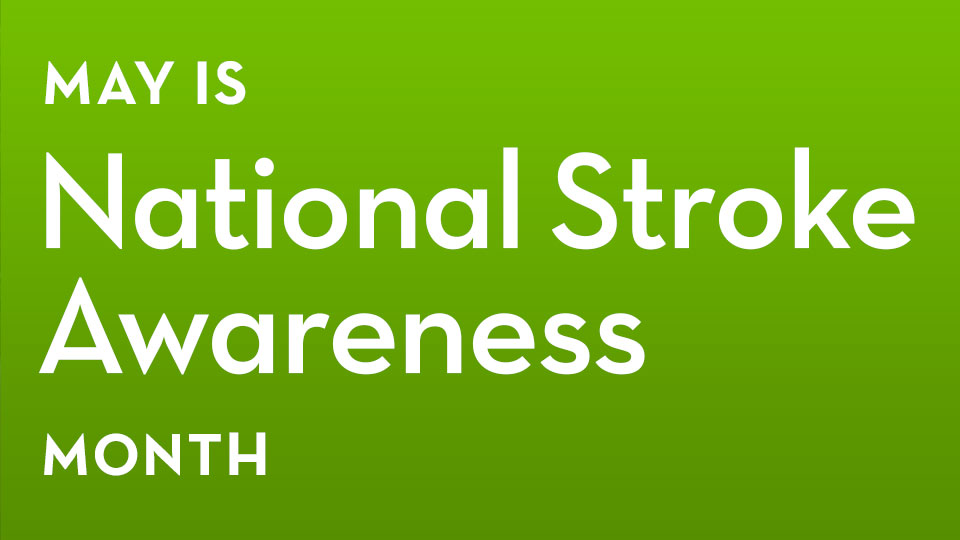
May is National Stroke Awareness Month, as designated by the National Stroke Association. For starters, what is a stroke? The fifth leading cause of death in America and a leading cause of adult disability, a stroke is defined as a “brain attack” when blood flow is blocked to the brain, depriving brain cells of oxygen and causing them to begin to die. Abilities controlled by that area of the brain are then lost.
The main indicator of a stroke is the SUDDEN change or onset of the following:
Remember F.A.S.T for evaluating if someone may have possibly had a stroke.
Before it gets to that place, though, there are actions you can take to lessen the risk factors and chance of having a stroke. Addressing these unhealthy lifestyle behaviors and taking steps to improve your overall health can have a real impact.
High blood pressure is a major risk factor for a stroke if ignored and left untreated. Reducing salt intake and avoiding high-cholesterol foods, while focusing on foods that are low in saturated fats and high in fiber is smart for everyone, but especially for those who may be at higher risk of stroke. Cholesterol clogs the arteries, which can lead to a stroke or heart attack. Make sure that fruits, vegetables, and fish are parts of your weekly diet.
Similar to eating habits, exercise is necessary for all of us to lead a healthy life and even more so for those at risk of a stroke. Lack of activity and obesity put a strain on the circulatory system, making one more likely to have high cholesterol, high blood pressure, and diabetes. An unhealthy body is less likely to be able to bounce back in the instance a stroke does occur.
Unhealthy lifestyle choices can also increase the risk of stroke. We all know that smoking and tobacco use is unhealthy. When it comes to strokes, it doubles the risk by damaging blood vessel walls, speeding up clogging of the arteries, and raising blood pressure, making the heart have to work that much harder. Excessive alcohol consumption has also been linked to strokes in studies. High blood pressure can come not only from the foods you eat but also from increased stress. Reduced and/or healthily managing stress is good for reducing blood pressure and overall better mental and physical health. In another post, we discussed the importance of sleep, and here is another reason to get at least seven hours, as getting the proper amount of sleep can help prevent a stroke.
A number of diseases and health conditions can be contributing factors to the risk of a stroke. Those with diabetes were found to be 1.5 times more likely to have a stroke. Atherosclerosis is clogged arteries, so by definition can lead to a stroke. Atrial Fibrillation (Afib) is an irregular heartbeat caused by the heart’s two upper chambers beating rapidly and unpredictably. This can cause a clot to form, which if carried to the brain, could cause a stroke. Don’t put off regular check-ups with health professionals, who could identify an issue you may not even know exists and allow you to take preventive action before it turns into something worse.
Being able to recognize the signs of stroke and knowing how to act quickly in the presence of one, could help speed later recovery and even save a life. Understanding what may cause one and how to prevent it can also save a life and provide for an overall healthier lifestyle through smart eating, exercise, and behavioral habits.
FIND YOUR VYBE